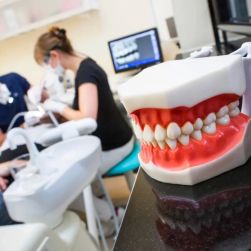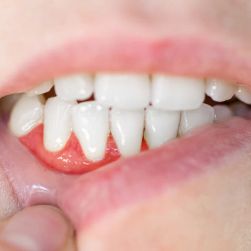Maximizing Your Dental Insurance for Routine Checkups: A Comprehensive Guide
Dental insurance can be a valuable tool in maintaining your oral health, but many of us are unsure about how to make the most of it, especially for routine checkups. I remember a few years ago, when I first got dental insurance, I was overwhelmed by the terminology and the different policies. Over time, I learned how to navigate the system, and now I want to share my insights with you so you can make the most out of your insurance for routine dental care.
Understanding Your Dental Insurance Plan
Before I could effectively use my dental insurance, I had to fully understand what it covers. You see, not all dental insurance plans are created equal. Some focus on preventive care like checkups, while others may provide better coverage for treatments like fillings, crowns, and more. It's essential to carefully review your policy details to know which procedures are covered and what you might have to pay out of pocket.
Here’s a tip: most dental insurance plans offer full coverage for two routine checkups per year, and these usually include a cleaning and a basic examination. This is a great place to start since it allows you to keep your teeth in top shape without any extra cost. Just make sure to schedule your appointments well in advance to ensure you don’t miss out on this benefit!
How to Maximize the Value of Your Routine Checkups
So, how do you make sure you're getting the most value from your checkups? Let me share a few strategies that have worked for me:
1. Schedule Regular Appointments
The first step in maximizing your dental benefits is to stick to a schedule. Most insurance policies cover two checkups a year, but many people skip one or both because they don't feel any pain or notice any issues with their teeth. However, these checkups are crucial, as they can catch problems early before they become more severe (and costly to treat).
For instance, I used to skip my dental appointments, assuming everything was fine. But one day, during a routine checkup, my dentist discovered early-stage gum disease. Thanks to the timely visit, I was able to address the issue with a deep cleaning procedure, saving me from more complicated treatments down the line.
2. Ask About Coverage Before the Appointment
It’s always a good idea to call your dental office ahead of time and ask them to verify your insurance coverage for the scheduled checkup. This will help avoid surprises when the bill arrives. Insurance can sometimes cover more than you realize, and it’s always better to be aware of your benefits before receiving care.
3. Utilize Preventive Care Services
Many dental plans include preventive care services such as fluoride treatments and sealants for children or adults at higher risk of cavities. These services can significantly reduce the need for costly treatments later on, and they’re often fully covered by insurance. During my checkups, I’ve taken advantage of fluoride treatments to strengthen my teeth and keep cavities at bay.
4. Don't Be Afraid to Ask Questions
During your checkup, don’t hesitate to ask your dentist about any procedures you’re unsure of or if they recommend treatments beyond the usual cleaning. I once learned that my dentist could provide additional fluoride treatments that my insurance covered, which I hadn’t known about previously.
What Happens If You Need Treatment During a Checkup?
Sometimes, a routine checkup will reveal problems that require treatment, like cavities, cracked fillings, or even the need for braces. This is where things can get tricky—insurance doesn’t always cover every single treatment. But the good news is that most dental plans offer partial coverage for many common procedures.
If your dentist finds an issue that requires treatment, ask for an estimate upfront. Most insurance plans will cover a percentage of the cost, and your out-of-pocket costs will depend on your plan’s coverage and deductibles. You can also ask your dentist about payment plans or financing options to make any treatment more affordable.
Understanding Annual Maximums and Deductibles
Another important aspect of using dental insurance effectively is understanding annual maximums and deductibles. An annual maximum is the highest amount your insurance will pay in a year. If you need more extensive work beyond your routine checkup, you could exceed this limit. This is why it’s essential to plan ahead and know how much you can expect to pay for dental work beyond your checkups.
I’ve had moments where I exceeded my plan’s maximum, and the cost was higher than expected. But knowing this ahead of time allowed me to spread out treatments over the year, so I didn’t overwhelm myself financially.
What to Do If Your Plan Doesn't Cover Certain Procedures
If your dental insurance doesn’t cover specific procedures, like cosmetic dentistry or certain advanced treatments, there are still options available. You might be able to work out a payment plan with your dental office or apply for financing options that can make treatments more affordable over time. I’ve found that many dental offices offer discounts for paying in cash upfront, which can help reduce costs if your insurance doesn’t cover the entire procedure.
5. Consider Supplemental Coverage
If you’re someone who needs extra coverage for procedures not included in your standard plan, you might want to consider supplemental dental insurance. These plans are designed to cover the gaps left by your primary insurance and can help reduce out-of-pocket expenses for more expensive treatments.
Real-Life Example: How I Used My Insurance to Prevent Major Dental Issues
Let me share a story to emphasize the importance of using dental insurance for routine checkups. A few years ago, I neglected my checkups for a few months because I didn’t think it was necessary. When I finally went for a checkup, the dentist discovered an issue with one of my molars that could have led to a root canal if left untreated. Luckily, because I had been using my dental insurance regularly for checkups, the problem was caught early, and I only needed a filling instead of a costly root canal. This saved me time, money, and a lot of discomfort!
Conclusion
Dental insurance is a valuable resource that can help you maintain your oral health and avoid costly dental procedures. By understanding your coverage, taking full advantage of preventive care, and asking questions, you can make the most of your routine checkups. Remember, regular visits to the dentist can catch issues early, saving you both money and stress in the long run. So, make those appointments, stay informed, and smile with confidence!






